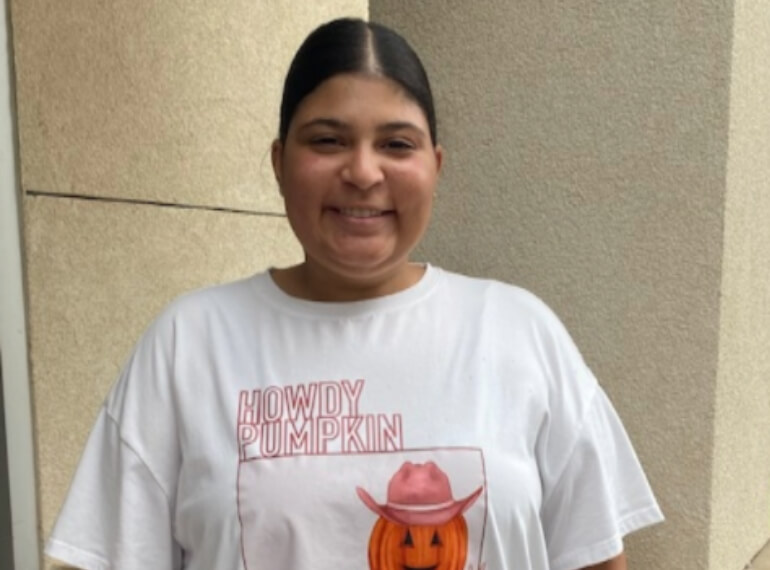Amy's Story

Medically complex
Amy Cadle, a resident of Austin for three years, was living an active and fulfilling life. As a behavioral therapist working with autistic children, she found joy in her work and was pursuing a master's degree in applied behavior analysis. Her spirit thrived on exploring Austin with friends, playing lacrosse and indulging in a good workout routine.
However, life took a surprising turn as excruciating muscle and joint pain robbed Amy of her mobility, independence and vitality. Without any specific injury or accident, doctors suspected an autoimmune disease, leading to a battery of tests and a lengthy period of uncertainty. Finally, after she was admitted to Baylor Scott & White Medical Center in Austin for blood tests, MRI’s, genetic tests, CT scans and a muscle biopsy, she was diagnosed with necrotizing myositis – an exceptionally rare autoimmune disease that weakens muscles.
Concurrently, Amy received immunoglobulin infusion treatments that alleviated her pain but left her weak and immobile. Following a stay at Encompass Rehabilitation Hospital, Amy found herself at Baylor Scott & White Institute for Rehabilitation (BSWIR) – Lakeway’s Day Neuro Program, where her high-intensity therapy began.
The challenges before Amy were monumental. She could not walk, stand or move her limbs independently. However, guided by an expert team of therapists, she gradually started conquering her limitations. Amy’s goals were to sit up, stand and walk on her own without any devices along with the ability to perform self-care tasks, such as driving, cooking, dressing and walking her dog. “I valued that the treatment planning was very collaborative with my needs and opinions at the front of decision-making,” she recalled. “I fully felt like I had a say in my treatment every step of the way.”
Occupational therapists introduced her to functional exercises, such as carrying items, putting away towels and moving items in and out of the fridge. “All of these seemed like silly activities, but they were necessary to help me to be able to take care of my dog, cook meals for myself and put away groceries,” she exclaimed.
These activities enabled her to regain the ability to care for her four-legged companion and perform essential daily activities. “I told [my physical therapist] that I wanted to work towards being able to pick up my dog again, and she had me lift weights that were close to his size to practice,” Amy said.
Physical therapists employed creative techniques to work on balance, such as kicking a soccer ball, bowling and chair yoga along with Pilates, outdoor trail walks and exercise groups. These exercises worked to restore balance, strength and flexibility. Speech therapists employed baking, planning a business trip itinerary, therapy dog visits and group card games to enhance her cognitive and communication skills.
With each passing day, Amy regained the strength to sit, stand, dress herself, cook and even drive. Simple tasks that were once unimaginable became milestones of triumph. An "ah-ha" moment occurred when Amy, who once struggled to stand, effortlessly rose from her chair unaided. She recalled, “After a couple of weeks in Day Neuro, I went from struggling to stand to being able to do it completely on my own. That's when I felt like I was finally starting to make progress and could see the possibility of being a normal 25-year-old again.”
The support of her family played a pivotal role in Amy's recovery. Her mother, temporarily relocating to Austin, became her dedicated caregiver, ensuring her daughter's needs were met. Amy's father and brother provided constant encouragement, virtually participating in her exercises and cheering her on throughout the process.
Reflecting on her journey, Amy imparts invaluable advice to those embarking on their own rehabilitation path. She stresses the importance of embracing every session and challenging oneself, never losing sight of the progress that awaits.
“In just three months, I went from being a scared, anxious girl in a wheelchair to walking around freely with confidence in what my body could do,” she recalled. “While everyone’s progress and timeline is different, day neuro will give you the best chance at returning to your normal life.”